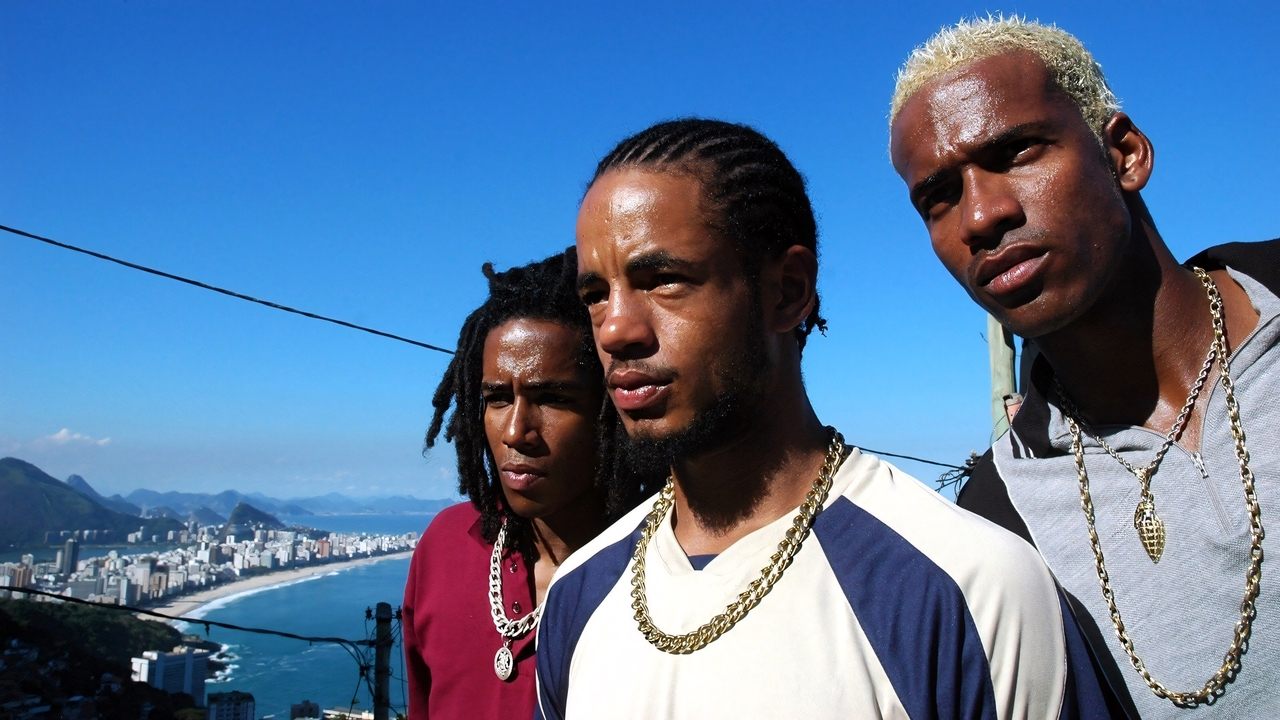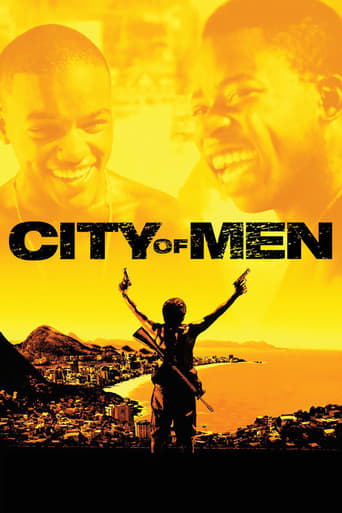

I've been mesmerized by the TV Show City of God and it was clear that i must see the movie that would end it. Well, i haven't been disappointed.Within the surroundings we've seen in the TV show, there is a lot of going on. Laranjinha, Acerola and their friends are growing up. Madrugadão has everything under control, or so he thinks as the appetite of some of his gang members grows.A lot of unexpected things will occur, but favela will witness silently as they all come and go. In a way this is a logical ending of the TV show. Some characters strive to exit favela and some succeed while others merely exit their lives.
... View MoreTerribly disappointed with CITY OF MEN after being swept away by CITY OF GOD. Lost is the exciting and unpredictable storyline, and instead, in its place, is bland predictability with the obvious attempts at audience manipulation by a superficial pretentious production and distribution team. This story ended up feeling like a sappy soap opera rather than a gritty indie feature, which is what is should have been. This is what happens when distributors try to seek a wider audience (ridiculous sweeping shots of the Rio coastline, etc) at the expense of a gripping story and characters. I really couldn't care what happened to any of the characters in this film - they were all so 2 dimensional. In short, sad waste of potential that should have been a slam-dunk following the exceptionally inspired CITY OF GOD. Boo!
... View MoreQuite an interesting movie - filmed in an almost 'cinema-verite' style. It is extremely authentic. The slums (or favelas of Rio), the dialogue, the gang members, the innocent by-standers are all depicted with a reality, that if it were not for the poverty, grimness and violence, would be considered refreshing. From that point of view it is much like 'City of God' but less nihilistic and the focus in this movie only centers on Rio de Janeiro. There is a positive out-look in that both the central characters are concerned with fatherhood; one is already a father and both do not know their real fathers (although this changes during the film). This creates a counter-balance to the slum and gang warfare. It took me awhile to understand or pick up on the storyline one must pay close attention during the first 30-40 minutes to the characters and dialogue. I realized after, when I watched the DVD out-takes, that this was based on a TV series so that may be a reason for those difficulties.
... View MoreIn this feature film adaptation of the Brazilian TV-Series City of Men, story is taking us to the early beginnings of the gangs of Rio De Janeiro in City of God. However, gangs are no more underdogs. They erect a reign of anarchy only because they don't have nothing else to do, and because they feel good when they commit anarchy. Their families are torn apart, schools are on strike, communities are swept by crime. Gangs are rebels without a cause, anyhow.Since these people are ignorant, they are fooled and taken in easily to crime. As the story progresses through an 18-year-old kid's look of life, he is seeking his father who has left home when he's born. Then he finds out that his father was a criminal and currently is a fugitive. Even though the kid still chose his father's side and got against his dearest friend.The plot is in the hands of an adapted screenplay which is inadequate to bear it. There is a terminated friendship between two old mucker, and one is shot by the other. Also in order to possess a hill which has a good scenic sea view, two friends get against each other just to have more injunctive power and authority over the same community of their own. Here the screenplay should have been effective, but it's not. So we fall into clatters of people defending their thoughts. We never find out the truth which side is right, which side is not; and there is no clarity. Both sides cannot be right at the same time, and if both sides are wrong then the story is self-defeating, and thus the story-teller is wrong, and if the story-teller is wrong, then we are mistaken to watch this complete nonsense.There is a dead end story you're running into. Leaders of the two enemy gangs are getting killed, at the end. Revenges are turned into vendettas. While a little dispute became a war, in the middle of the war, our leading role heroes are escaping out of it, with an infant boy.Once he has already seen the grim face of the war, Baby Clayton will never stop crying.
... View More